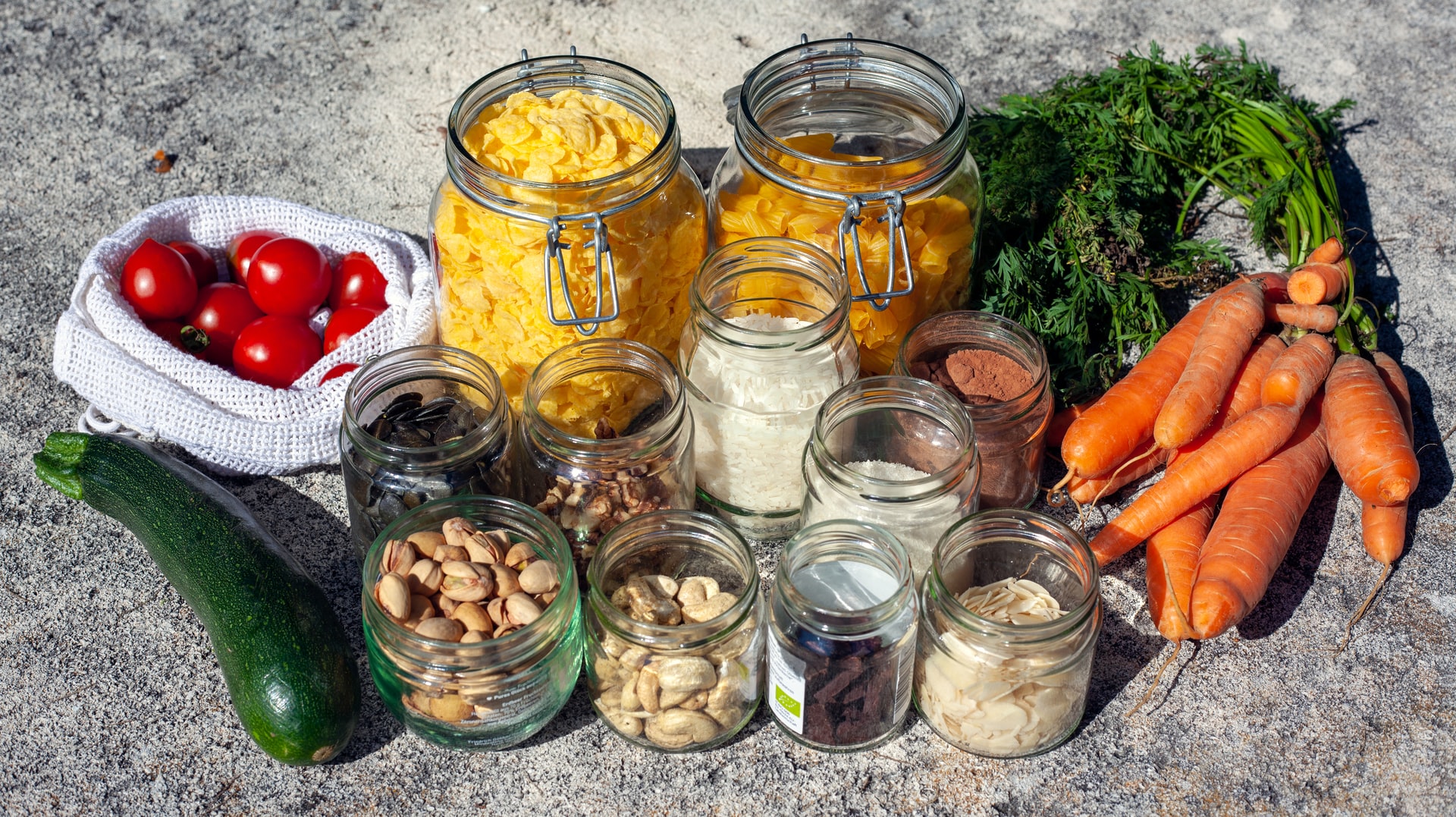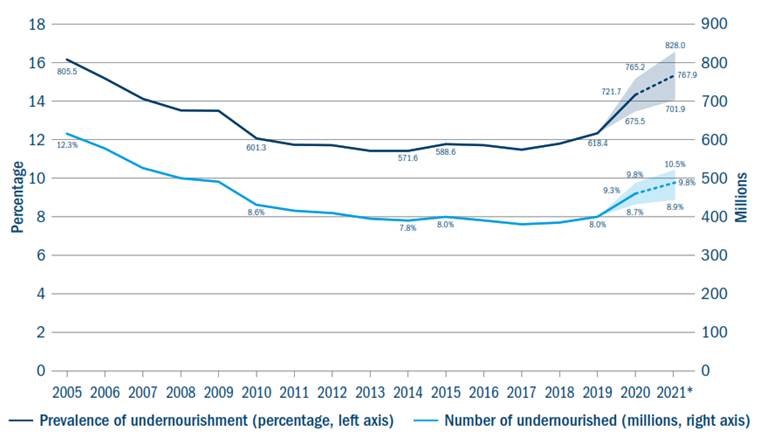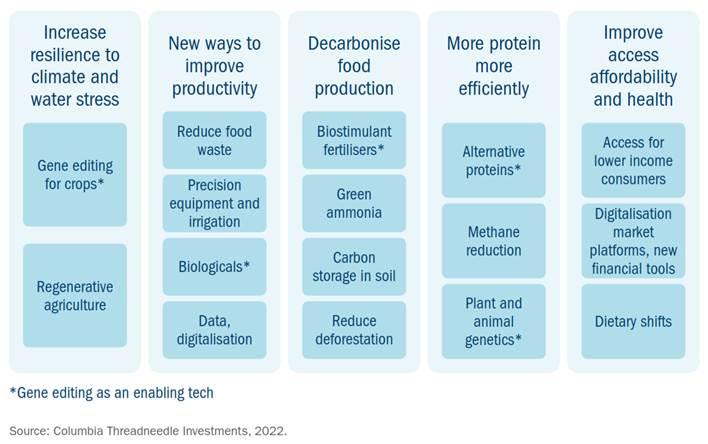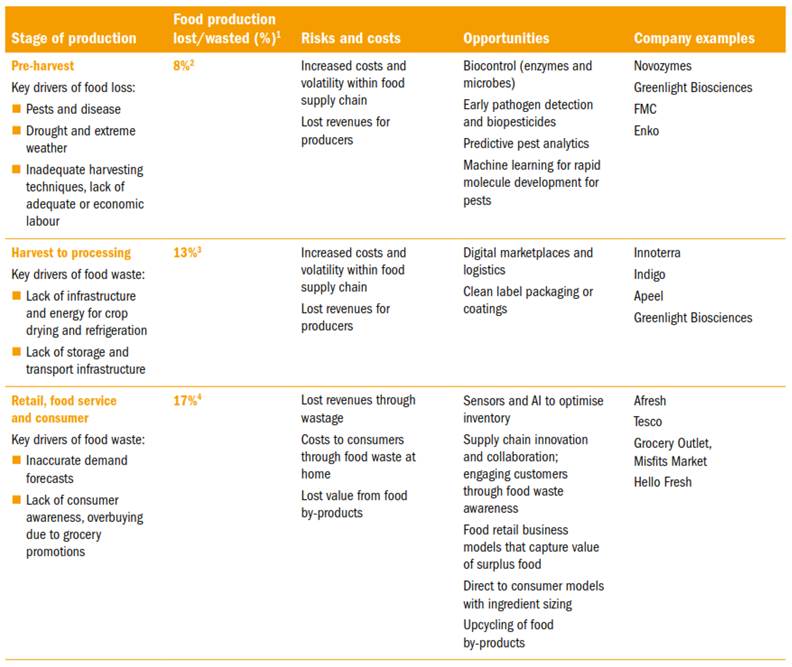Will inflation strengthen food security?

The challenges of food security turn the spotlight on the sustainable transition. Analysis by Olivia Watson, Senior Thematic Investment Analyst, Head Investing at Columbia Threadneedle Investments
In many parts of the world, 2022 was characterized by a drastic increase in food prices. This has been caused by the combined effect of climate change, supply chain problems linked to the Covid-19 pandemic, trade disruptions and energy price increases attributable to the war in Ukraine. Even as prices have eased from their highs earlier this year, the global food situation could remain tight into 2023 or beyond due to dwindling grain inventories, scarce or of depletion, high prices of fertilizers, energy and the impact of the conflict in Ukraine on agricultural production.

All of this therefore risks continuing the upward trend in global food insecurity recorded since 2019 (Figure 1). Furthermore, this situation increases the risk of social and political unrest, especially in countries that are most dependent on food and fertilizer imports, while exacerbating inequalities in developed countries.
The confluence of events affecting the food system between 2020 and 2022 has been remarkable, but that may not be a rarity in the future. The physical impacts of climate change and volatility in energy prices, coupled with the energy transition, increased water stress and biodiversity loss, will only further exacerbate pressures on the food system over the coming years and decades. As we have seen during 2022, similar pressures and shocks risk leading to protectionism and trade disruption, thereby compromising food security.
In our view, increased awareness of these pressures will accelerate the shift towards a more resilient and sustainable food system. Recent legislative developments have begun to highlight this aspect, drawing links between food safety problems and sustainability. For example, the US Inflation Reduction Act (IRA), passed in August, provides funding for "climate-smart agriculture", while the recent White House biotechnology summit highlighted the role of innovations such as synthetic biology in achieving food safety and environmental goals.
The transition to a more sustainable food system will be broad and multifaceted. To focus on the implications of this shift for investment, we have developed a framework focusing on five cross-cutting themes that will guide and shape the transition: increasing resilience to climate and water stress; find new ways to improve productivity; decarbonise food production; produce more protein more efficiently; improve access, convenience and health outcomes.
Ultimately, each of these five themes will have to be pursued simultaneously and complementary, so that they can reinforce each other. As highlighted in Figure 2, each theme will require the adoption of policy measures and the enhancement of related technologies, creating risks and opportunities for the food sector.
Looking forward, we intend to use this framework to explore the subtopics, supporting technologies and implications for both traditional agribusinesses and potential innovators.

A wasted opportunity?
Taking the theme “finding new ways to improve productivity” as an example, one of the main areas of interest is that of food waste. It is estimated that one third of food is lost or wasted along the value chain, so reducing waste is clearly one of the most powerful levers to be activated to improve the productivity of the food system. Furthermore, reducing food waste could mitigate an estimated 8-10% of global greenhouse gas emissions and ease environmental pressures by reducing the water, soil and agricultural inputs needed to produce the currently wasted food. Last but not least, improved efficiency and food availability also generate social benefits.
Food waste is a known problem but, due to its complexity, historically low food prices and misaligned incentives, it has not been considered a significant priority. Today, however, we believe that global food price inflation and heightened awareness around food insecurity will prompt a change of pace, with more incentives introduced to push consumers, businesses and governments to reduce food waste.

This is a machine translation from Italian language of a post published on Start Magazine at the URL https://www.startmag.it/economia/sicurezza-alimentare-transizione/ on Sun, 27 Nov 2022 07:06:43 +0000.
